Huawei P10 review: still a good choice in 2018
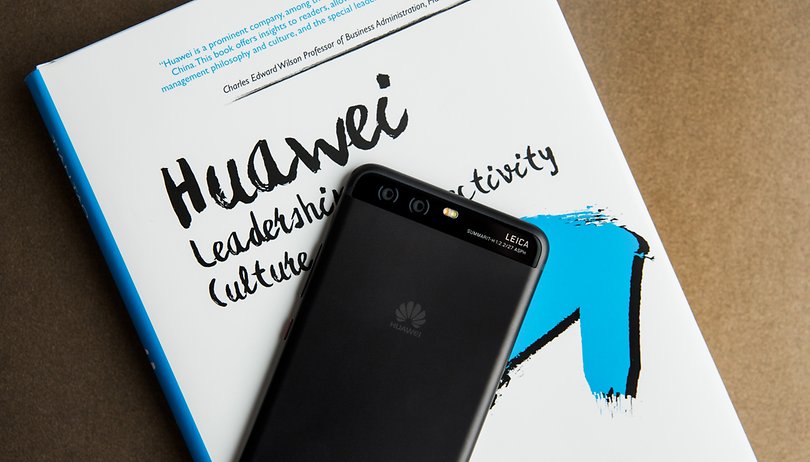

At MWC 2017, Huawei presented the the P10 the successor of the popular P9. With a promising processor, an optimized dual camera and sleek design, the new device impressed many at the time. But it's 2018 and technology keeps moving on. Could the Huawei P10 still be the right phone for you in 2018? Find out in our review!
Good
- Quality workmanship
- Ergonomic
- Ultra-fast fingerprint scanner
- Fast and smooth software
Bad
- Missing an IP67/68 certification
- Battery
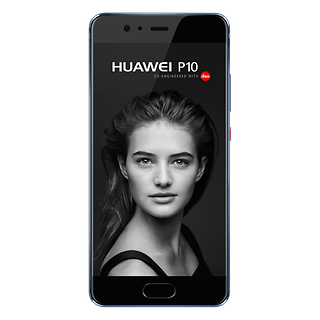
Huawei P10 release date and price
Huawei presented its P10 device last February at the Mobile World Congress 2017. The flagship was initially available in Graphite Black, Mystic Silver and Prestige Gold but blue and red color options were later added.
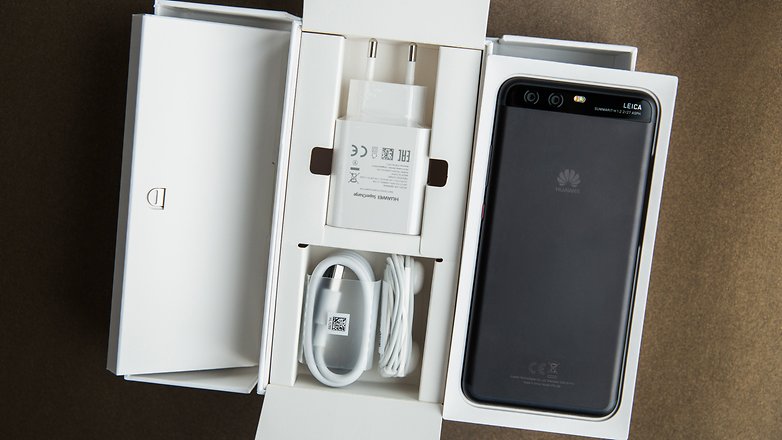
In the box, which opens outwards on both sides from the middle, there is a set of earphones (that look just like the earbuds made by Apple), a 4.5V-5A SuperCharge charger, a USB type-C cable and the usual SIM and microSD card tool - all in addition to the actual device of course, which is covered by a transparent protective film.
Huawei P10 design and build quality
What about the design of the P10? Don't expect anything revolutionary with respect to its predecessor but some changes have been introduced, which are already visible at first glance. The metallic unibody offers sleeker lines with more rounded corners.
The back of the phone reveals the most obvious change from the P9: the fingerprint scanner has been moved to the front of the P10 and the back has been split into two sections. There is a narrow strip across the top containing the dual camera beside the flash and the area beneath is a matt housing that has the Huawei logo and the phone model number. The back of the P10 actually alludes to the iPhone in my opinion.
The rear of the phone is reminiscent of the new iPhone
Overall, the back of the phone is nice but fingerprints show up quite obviously, like on the display - a top tip though, the silver variant masks the fingerprints better than the other color variants.
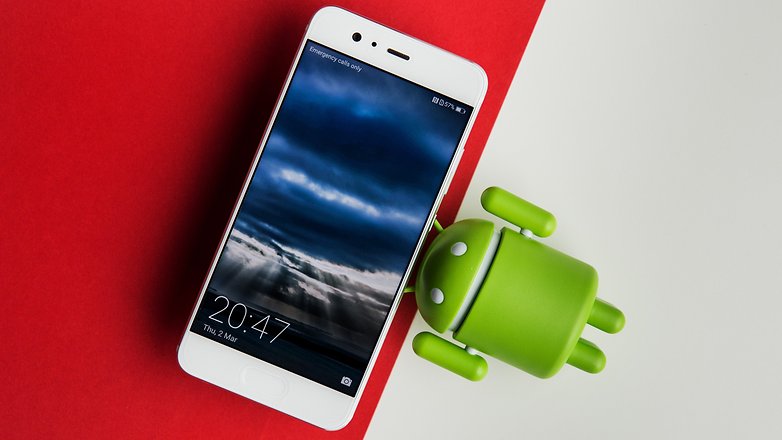
Upon closer inspection, the antennas are also on the back on the phone. These are very cleverly thought out as they are barely noticeable, subtly hidden around the camera module and along the bottom edge of the phone, unlike on some of the P10's competitors.
The antennas are well camouflaged in the Huawei P10, disappearing around the camera and along the bottom edge
The front of the phone is protected with Gorilla Glass 5. In addition to the front camera lens is an ambient light sensor and the speaker for phone calls, as well as an oval-shaped fingerprint scanner, which can also be used to navigate through the display.
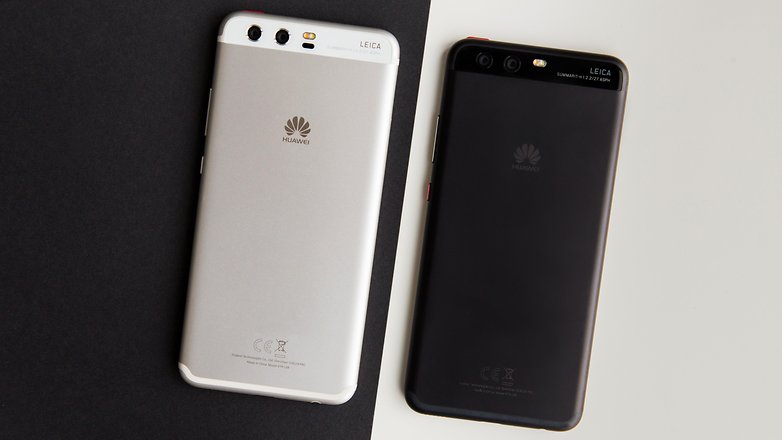
I must admit that at first, I wasn't particularly overjoyed with the decision to move the scanner to the front because to me, the P9 was a very comfortable phone. But, after trying it out, my opinion was swayed because it's fast as lightning and it's easy to use if the phone is lying on a surface, for example on the table. Unfortunately, it does get a little in the way if you try to take a selfie.
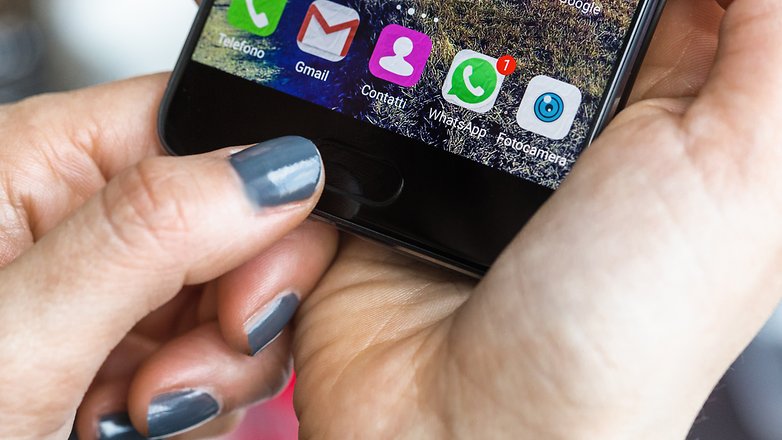
The volume control and the power buttons are located along the right side of the phone - you can feel and see these buttons thanks to the different texture and red coloring. The left side has micro SD and nano SIM card ports. On the bottom, like on the P9, there is a speaker, a USB type-C port and the mini-jack for headphones.
The Huawei P10 doesn't have IP 67/68 certification
Another P10 variant has what's called a Hyper Diamond Cut finish. This model was made using technology that adds diamond dust to the final polish. The outside of the smartphone is made of thousands of tiny pyramids that play with the light to create particular reflections. This process makes the back of the phone more hardy and robust, making the device to stand out among its competitors.
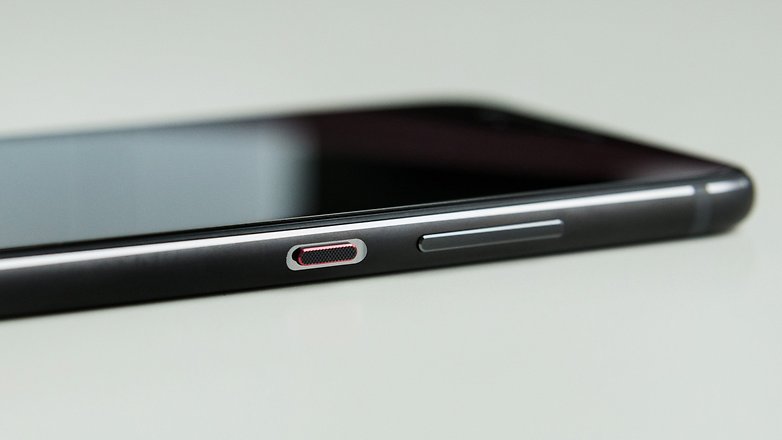
The P10 has an elegant body that is nice to handle, as it is sturdy and easy to use one-handed thanks to its 6.98 thickness (or thinness). Admittedly, a negative point for me is I don't like how the P10 looks; its almost as if the design is based on the latest iPhone. I also don’t like that Huawei decided against the IP67/IP68 certification, which at this point I would have expected to be a given since all its main rivals opted to have it, including the LG G6, for example.
A good, if not perfect display
The 5.1-inch display of the Huawei P10 offers full HD resolution with 432 PPI and an IPS panel, which the last generation had as well. The P10 doesn't support virtual reality unfortunately so if you're particularly keen on getting Google Daydream, you'll have to go with a different device like the Lenovo Moto Z or the Google Pixel 2.
By using the fingerprint reader button to navigate, you can enjoy the display even more
The display is bright, even in direct sunlight. The colors are vibrant and clear, although the black isn't as pure as you'd expect to find on an AMOLED display. The panel offers good viewing angles, although there is now the fingerprint scanner on the front. Just like the Mate 9, the Honor 8, and the P9 with the Nougat update, you can now activate eye protection to reduce eye fatigue at night.
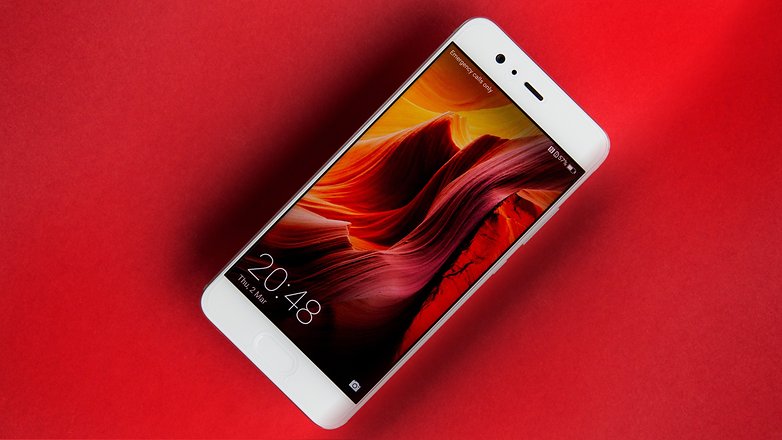
If you choose to use the fingerprint scanner to navigate, you'll have more space on the display but otherwise, you can always opt for the classic capacitive buttons. To activate these, go to Settings> Navigation keys> Virtual navigation bar.
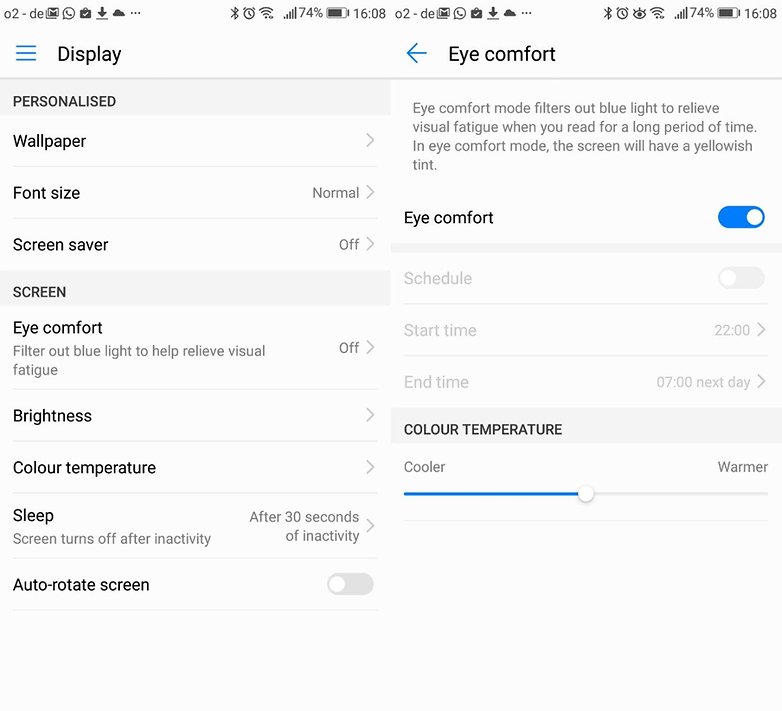
Scheduled update to Android 8.0 Oreo
The P10's native software is Android Nougat with EMUI 5.1 but the update to Android Oreo and EMUI 8.0 is confirmed and scheduled. Get ready to enjoy the latest software innovations introduced by Google, customized by Huawei for your devices.
However, EMUI is more than just a software interface: the Chinese manufacturer has added significant improvements to the system in terms of optimizing Machine Learning as well as the RAM and internal memory. As background information, this involves the system analyzing how you use your phone and learns which app(s) needs to be ready to be used. This whole process takes place on the device, offline and guarantees long-term performance.
In general, the system works flawlessly and efficiently
Like for the Huawei Mate 9, the P10 includes all the innovations introduced by EMUI 5.0 and Android Nougat. This includes App twin (which allows you to use two WhatsApp and Facebook accounts on the same device), the ability to activate/deactivate the App drawer, smart notification management, suggestions within the setting menu, and other possibilities that you'll discover in our article on Nougat and EMUI 5.0 on the Huawei P9. Plus, we also have options like one-handed use, although I have to say, this function didn't always respond efficiently.
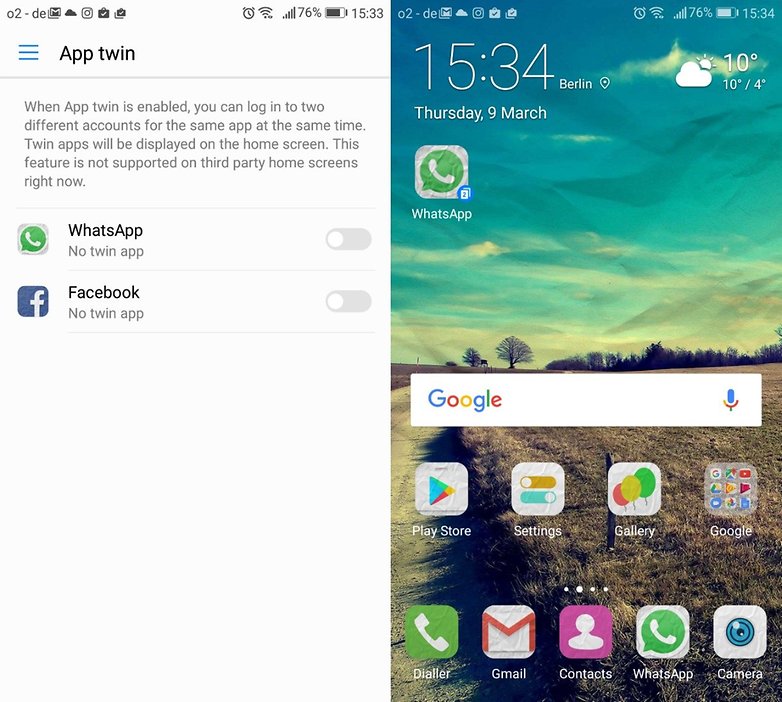
What distinguishes EMUI 5.1 from the 5.0 version available on the Mate 9 and the P9 is the camera's software, which has been improved and integrates a new GoPro photo album. Another popular video-editing app, Quik, is also pre-installed on the P10. Through these collaborations, you can create videos that incorporate all your photos, which you can then easily share on social media.
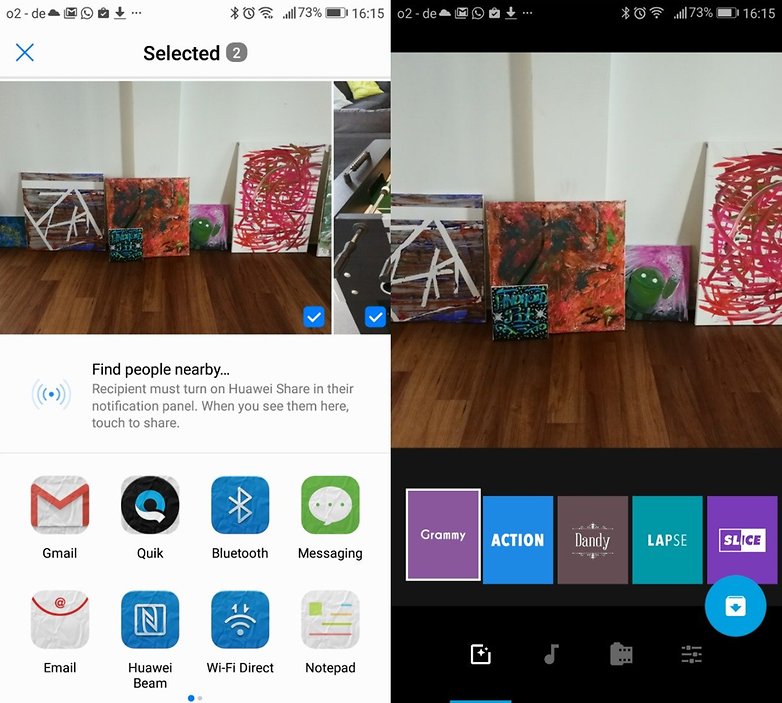
The fingerprint scanner is fast but it doesn't work as a physical button. You can configure it to unlock your device and for other functions such as recent apps and the back button. You will however need to get used to this new way of navigating, though honestly, you'll pick it up in no time.
On the other hand, it's worth highlighting the available gesture commands. For example, you can divide the screen in two by simply drawing a line down the middle. As always, the software has personalized options such as new backgrounds (albeit not very exciting ones, as is always the case with default options), widgets and transitions.
In addition to Google apps, some of Huawei's services come pre-installed (Hicare, Wellbeing, HiGame, Themes, Phone management), as well as Tripadvisor, Instagram and Twitter. However, you can uninstall these if you don't want them there. If you have an iPhone or a Huawei phone, it'll be much easier to transfer your data to your new P10 through the Clone app.
INSTALL (com.hicloud.android.clone)
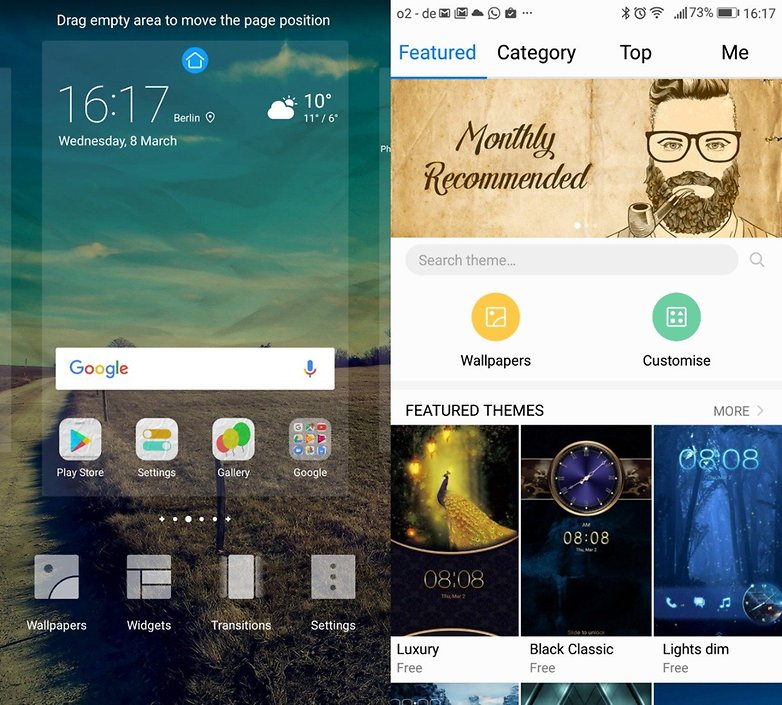
In general, the system works smoothly. Compared to older versions of the software, it's much cleaner and more advanced.
It won't beat 2018's flagships, but is still great for everyday use
From a hardware standpoint, the P10 doesn't differ much more than the Mate 9. They both come equipped with a Kirin 960 octa-core 2.4 GHz processor with 4 GB of RAM, LPDDR4 and 64 GB of internal memory, which can be increased with a micro SD card. The graphics are run by an octa-core GPU Mali-MP8 and it also supports API Vulkan. Unlike the Kirin 970 introduced with the Mate 10 Pro, the P10 chip does not integrate an artificial intelligence unit.
The fluidity of the system is undeniable. Multi-tasking doesn't have any downsides either. When it comes to games with demanding graphics, such as Real Racing 3, you can see where Vulkan shines. In the first versions of the system, there was some lag when we received notifications but it seems to have been solved with a small update.
As you can see from benchmark tests, the P10 isn't very different from the P9:
Huawei P10: benchmark results
| 3D Mark Sling Shot ES 3.1 | 3D Mark Sling Shot ES 3.0 | 3D Mark Ice Storm Unlimited ES 2.0 | Geekbench CPU - single core | Geekbench CPU - multicore | PC Mark Work Performance | PC Mark Storage | Google Octane 2.0 | |
|---|---|---|---|---|---|---|---|---|
| Huawei P10 | 2033 | 2627 | 28128 | 1913 | 6032 | 6194 | - | 9004 |
| Huawei Mate 9 | 2093 | 2308 | 25392 | 1930 | 5604 | 7675 | 7106 | 10935 |
| Samsung Galaxy S7 Edge | 1977 | 2362 | 30310 | 2018 | 6248 | 5077 | 4607 | 10292 |
| Google Pixel | 2559 | 3329 | 27702 | 1574 | 3980 | 5263 | 5076 | 8791 |
The antennas for your mobile connection have been improved as well. They now come with LTE cat. 12 with a 600 Mbit/s capacity, doubling the maximum speed. The P10 comes with Wi-Fi 2x2 MIMO, which improves your connection while you move and around obstacles and it supports the standard 802.11ac as well (11ad is not supported unfortunately). Bluetooth is supported up to version 4.2 as well as NFC.
For daily tasks, the speed and connections are incredible. Even when I used the phone under demanding conditions, playing games and other demanding apps, I didn't come across any problems either.
Middling sound quality
The Huawei P10 only has one mono speaker located on the bottom of the phone. To really get the most out of music playback, you can use the earphones included in the box, which are actually decent.
Maximum volume is loud and clear, as much during phone calls as during video calls. With games or videos, the mono speaker does a satisfactory job for a mono speaker but you might miss hearing different things in each ear. The P10 lacks FM radio and the possibility of using stereo audio as on the Mate 9.
Strong dual camera that gets weaker in the dark
The rear camera on the Huawei P10 has the same characteristics as the one on the Huawei Mate 9 - a 20 MP camera with monochromatic resolution and another 12 MP (f/2.2) color-sensitive camera without optical image stabilizer. For the first time, all three cameras (front and back) come with Leica lenses.
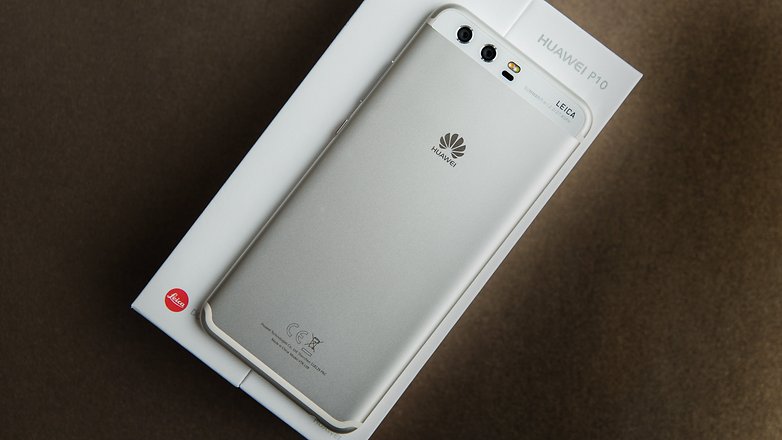
The selfie camera on the Huawei P10 focuses on a fixed distance and comes with 8 MP and f/1.9. If you prefer a front autofocus, we'd recommend the P10 Plus, which comes with that option. The aperture of the front camera is f/1.9. For groupies (group selfies), there's a way to open the capture angle even wider.
The camera's software has been optimized compared to the Mate 9
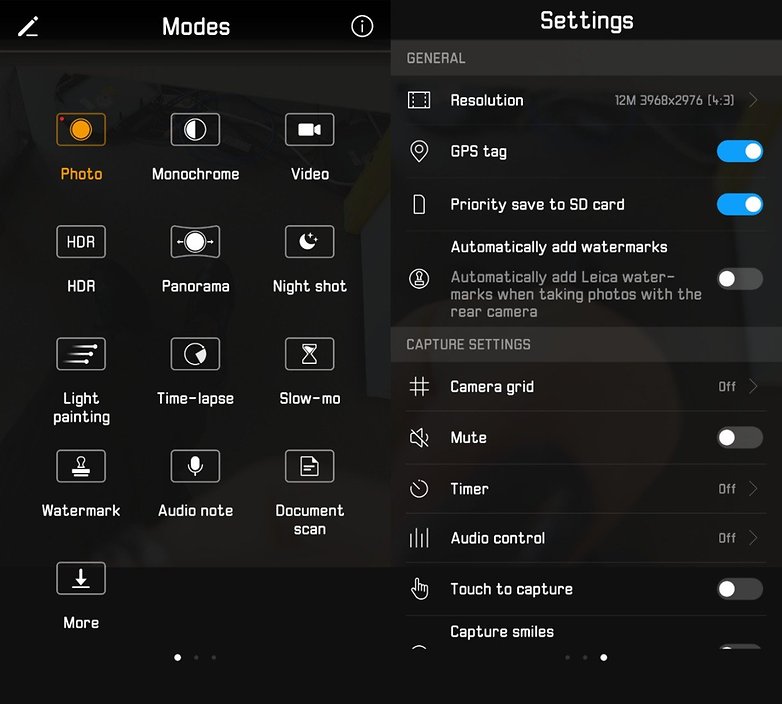
The main camera has Summarit range lenses, an aperture of f/2.2 and hybrid zoom. You can zoom at 2x without losing quality, and the system uses the resolution difference between the sensors. Only the 12 MP sensor comes with optical image stabilizer.
The camera's software has been improved from the Mate 9 and they've introduced a new portrait mode that can be used with both cameras, but you obviously get better results with the rear camera.
Photos taken with the P10 compared to other devices (LG G6 or Pixel) are a bit duller and less detailed
When lighting conditions aren't very good, colors are slightly changed, but this is a problem we find on several other devices as well. The beauty mode has also been improved to recognize "Caucasian" skin tones and adjust them to beauty standards.
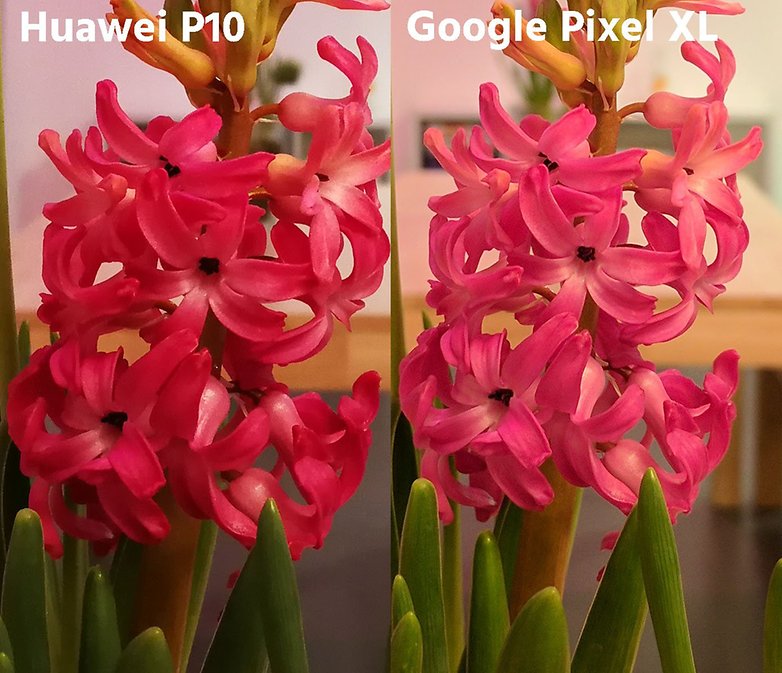
In general, when taking daytime photos with good lighting, the pictures came out with crisp detail and color fidelity. When the sun starts going down and light starts disappearing, colors and details start to suffer. If we compare photos from the P10 to those of the LG G6, the latter offers a better photo.
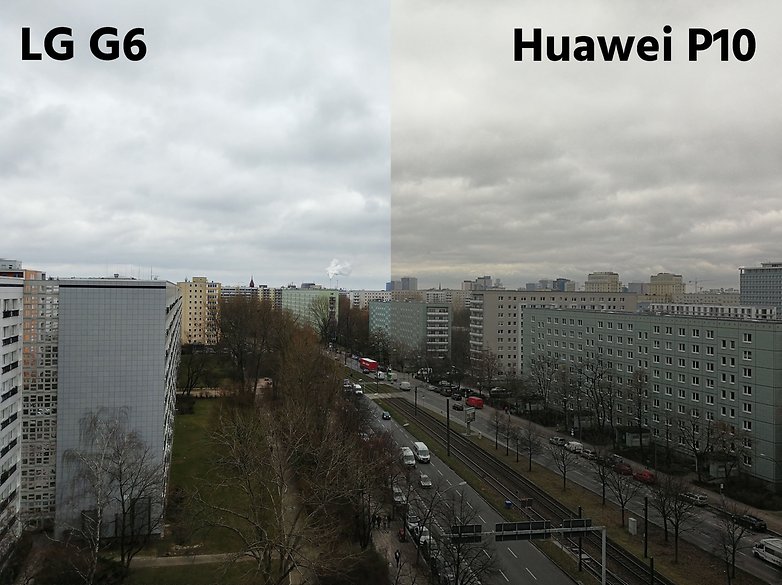
In the following images, you can see how the noise increases depending on the ISO. With higher ISO, noise is so high that the image quality is severely affected.
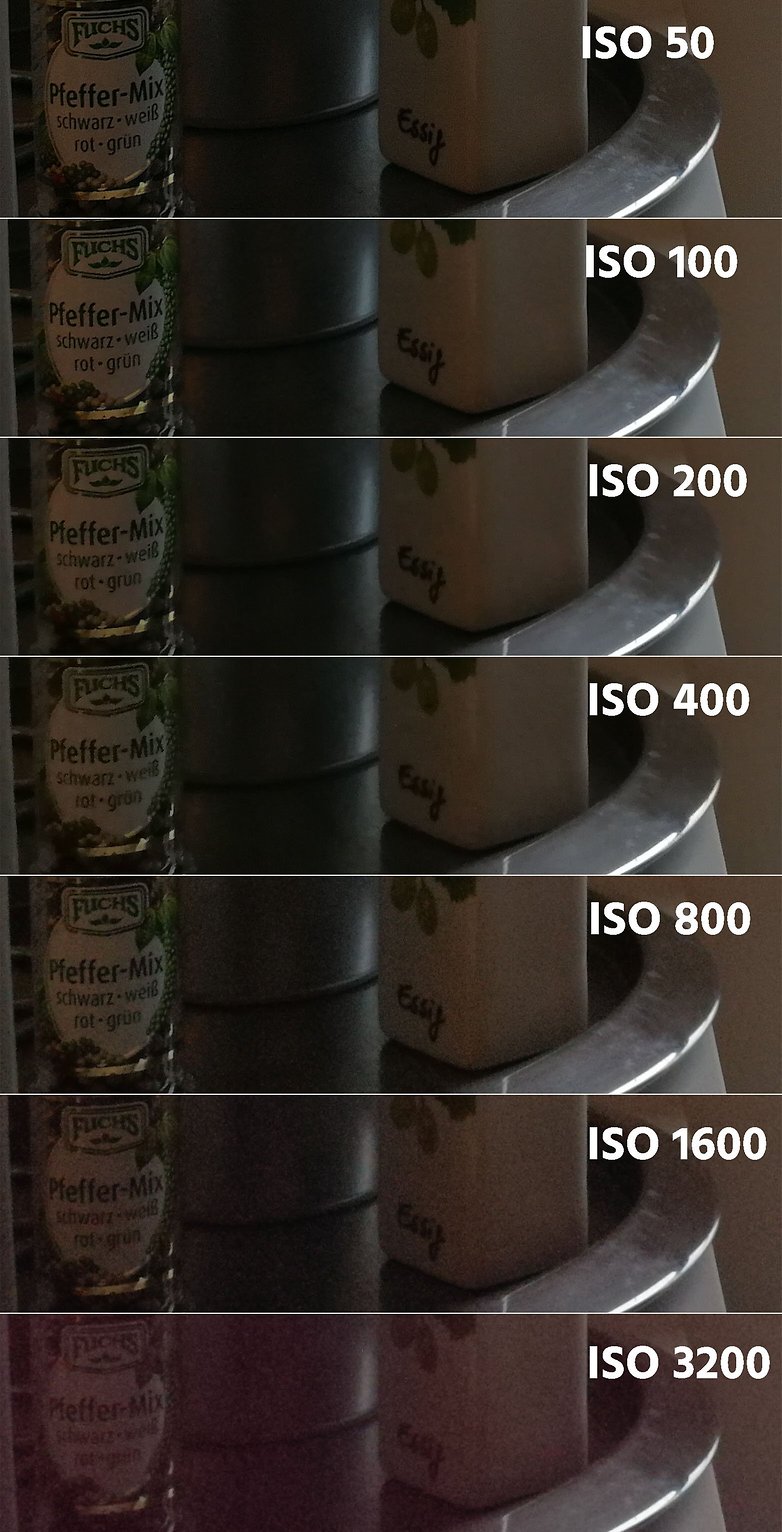
In summary, the Huawei P10 camera is good but there are three or four smartphones out there that have better cameras, like the Google Pixel or the LG G6. Despite that, the P10 doesn't disappoint and has a large range of effects and filters to play with.
The average user will not be disappointed by the quality of the P10 shots and the fast and intuitive software that leaves room for filters, bokeh effect and Pro mode. Black and white shooting enthusiasts will appreciate the work done by the monochrome sensor.
With the Huawei P10 it is also possible to shoot videos in 4K at 30 frames or in Full HD at 30/60 frames per second.
Battery life could be better
The battery has been improved with respect to the P9, reaching 3,200 mAh in the Huawei P10. Thanks to the quick charge from the SuperCharge, 30 minutes will get your battery up to 50%.
In the PC Mark Battery test with Wi-Fi deactivated, SIM inserted and brightness at 50 %, the P10 lasted 7 hours and 51 minutes
The battery is capable of withstanding a full day of checking emails, making calls, looking at Whatsapp, Facebook, Instagram, a few short game sessions as well as watching some videos. Under more intensive use, you'll have to charge it overnight. To be honest, I was expecting a bit more from the P10 in terms of battery life.
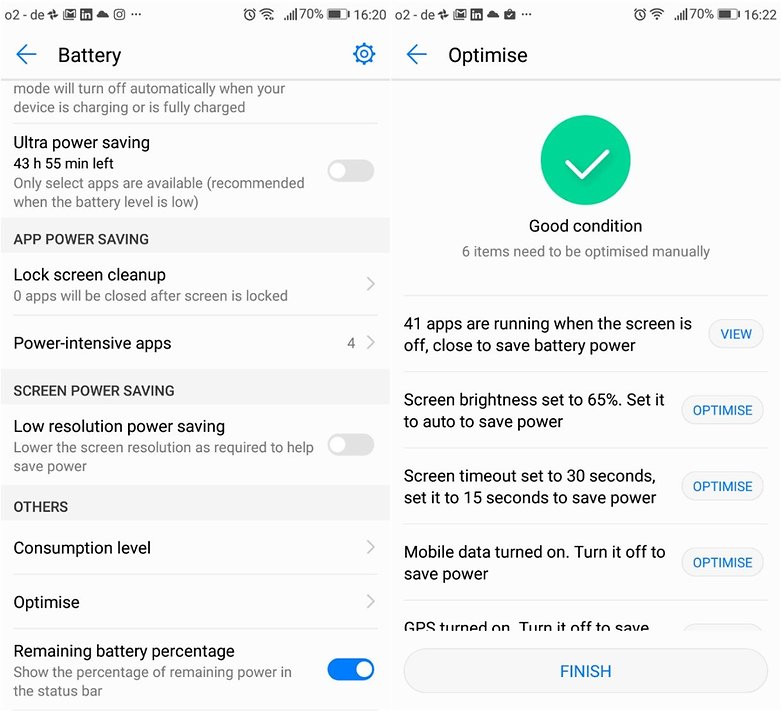
In the settings menu, you can activate energy-saving modes "Economical" or "Ultra", which is recommended if your battery is almost dead and you need to keep your phone alive. This function limits the background apps by decreasing or deactivating visual/audio functions and deactivating background email syncing. Huawei also offers the option to decrease resolution to increase battery life.
In the PC Mark Battery test, with Wi-Fi deactivated, SIM switched on and 50% brightness set to 50%, our P10 yielded a result of 7 hours and 51 minutes. If you need a Huawei smartphone capable of giving you more autonomy, the Mate 10 Pro, Mate 9 or Nova Plus are the devices that could be right for you even if the latter is in the mid-range.
Huawei P10 technical specifications
Final verdict
The P10 is still a solid smartphone choice. Although it can't claim to be original, its design is elegant and ergonomic and it comes with a few perks. Having the P10 in your hand is a pleasure and during daily use, it doesn't lack in performance: the improved chip and optimized software run as promised.
The camera leaves a bit to be desired when lighting conditions aren't ideal, especially when compared with better devices that are already available on the market. The battery will get you through the day with normal usage, but we're hoping that with future updates, it will gain even more life. In general, the P10 is a good device that handles daily tasks without problems and will receive the update to Android Oreo
Overall, the P10 still meets the needs of most users in 2018. The work done by the Chinese brand on this device is excellent, with the unfortunate exceptions of the lack of IP68 certification and the absence of a unique standout feature. If you have a P9 in your pocket, the P10 offers something extra and shows the excellent work done by the Huawei once again but the gap is not big enough to justify the upgrade. Better to wait for for the P20 instead!
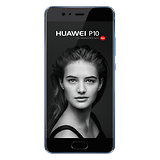
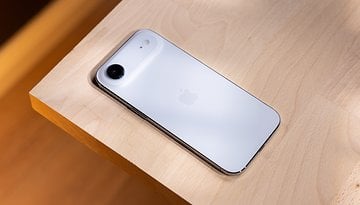
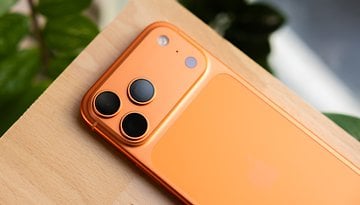
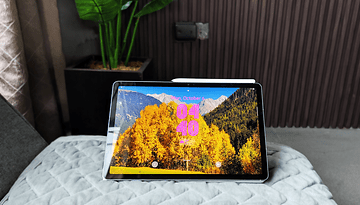

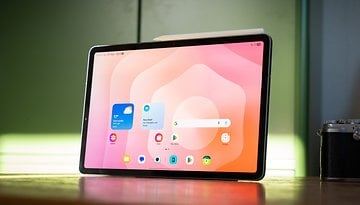
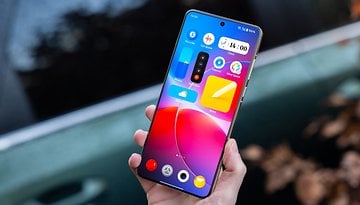
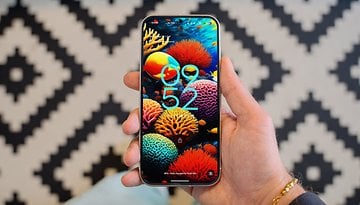
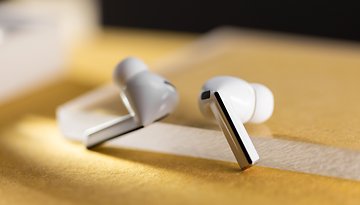
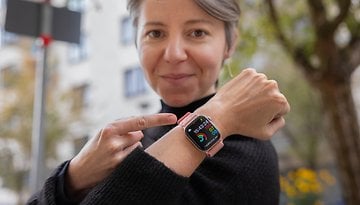





I think Huawei phones have vastly improved. It's too bad the deal with AT&T & Verizon fell thru. The competition would have been very good here in the US. The thing I wonder with the money that Apple & Samsung have did they have anything to do with this deal? I say, yes!
Huawei P10 is really a fabulous smartphone. I really with you that "SO MUCH MORE THAN JUST AN UPGRADE". I will buy , Huawei phones are available in Bangladesh.
I've seen other reviews elsewhere (Juan at Pocketnow) that state this camera is nicer than the G6 in terms of pure camera output (not counting 'gimicks' like wide angle). It's also faired well in DXO Marks tests.
Thing is, that this device costs 150$ less than a LG g6 (that means 250$less than a new coming s8) and for that price, it is great buy compared to those... But then, there are so many devices that now cost additional 200$ less, like Huawei's own p9 wich i personally find better bang for the buck.
Smartphones like p9, honor 8, op3t, s7 and some others are more than capable of doing everyday tasks...and it is hard to justify spending more money to a new flagship when last year's flagsips are almost the same ...not just as upgrade, i found same result by thinking of buying new device today... I would still go for cheaper last year's.
Buying last year's flagships can be a great idea. You get great specs for MUCH less money.
I like Huawei P10 but why do they use the LCD screens,they are behind in terms of the screens but once you actually see and feel this phone you will fall in love with it,the features are good and I think Huawei has a real winner despite the few features this phone lacks in.This is really a solid phone I personally like this phone I think that this is a good deal.If you don't believe me go and test it out,trust me this is a good phone,well for me it is an excellent phone.
Small screen.
The P10 Plus has a bigger (5.5") screen, which I'm a big fan of. You can check out our hands-on review here:
https://www.androidpit.com/huawei-p10-plus-review
Will the offer of Dual Cameras have the edge over the Samsung Galaxy S8 models?thought Huawei would join the Edge screen craze and put more pressure on Samsung,but it early days of the year so we might get one released,
Andrew, are you a fan of dual cameras? The trend doesn't excite me very much.
I don't really think that it will an advantage because it is likely to have the same camera as the S7 which is not a bad camera,it is actually a very good camera.I don't really like the dual camera trend,I prefer the single camera.